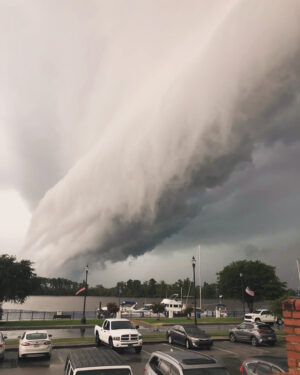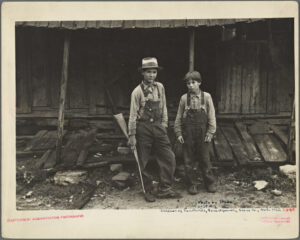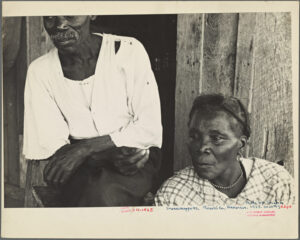About mid-way through this Mule’s life, I worked for Popmatters.com as the Books Editor. We had around 70 critics in my department and back in that day, digital previews were not available. I had to arrange for books to be sent to the critic direct from the publisher. It was an interesting job. I still receive books, mostly Young Adult Fiction, at the rate of around ten a month. Lucky me, The Hunger Games and now popular teen fiction turned movie hit my mailbox ahead of the bookstores. I digress…
One of my favorite things to do as a critic was (and still is) talking to authors. It’s part of where the whole Southern Legitimacy Statement began — from us wanting to know more about the writer, not about where the writer could be seen in print or online. We started The Dead Mule online in 1996 as a response to some conversations with short story writers. I met quite a few extremely talented writers in The Netherlands in 1996 at the Ploughshares International Fiction Writer’s Conference. While the writers were from all over the world, their frustrations were similar. How to break into print, how to get someone to read a manuscript … these were dinner conversations because our days were filled with learning techniques and critiquing writing. Emerson College sponsored the conference at Kasteel Well. I’ll write more about it soon. The relevance of those conversations … it helped to define what we wanted the Mule to be for writers. A place to submit where first time writers would be read and considered.
Okay, back to the point of where I’m trying to land this bit of conversation. Letting you know about a movie release.
I enjoyed many conversations with authors while writing and editing for Popmatters. My dearest friend, Janis Owens, a real flesh and blood sister in spirit — our relationship came out of Popmatters. (American Ghost, buy it, read it… let me know how much you enjoyed it) My email friendships with Jack Engelhard, Dan Brown, Marlin Fitzwater and many many more fabulous novelists … during the early 2000’s, so many conversations came from my Popmatters connections. One special author, Joseph Finder, continues to write engaging and entertaining thrillers.
His novel, Paranoia, will be released in theaters on August 16. Originally slated for an October release, this thriller with Harrison Ford, Gary Oldman, and Liam Hemsworth should be AMAZING! Can’t wait to see it. Good luck, Joe! Here’s a link to my Popmatters interview with Joe from January 2004. Wow, has it really been that long? My daughter went to a Paranoia booksigning in Pittsburgh shortly after I conducted my interview with Joe and came back with details about his charm and personality. Isn’t it a wonderful thing to see someone succeed?
Val MacEwan: Some books seem tailor-made to be motion pictures. When I read Dennis Lehane’s Shutter Island, I knew it needed to become a movie. I could see it in my head, same was true with Mystic River, but I was unsure if they could pull it off. The DaVinci Code? That will be a tough one, it’s so complex—a lot of it will be left out, but I’ll be the first in line to see it. How often do you think authors write with movies in mind—could that be considered almost a genre? “Thrillers/suspense meant to be movies” Or, do you think a good thriller/suspense novel should be written so vividly that it brings up such strong images of place and personality that the reader should “think” in terms of the book as a movie?
Finder: Good question, but a complicated one. Some authors write their novels with the thought that they’ll be made into movies—but the thing is, Hollywood is so capricious that you can’t count on anything. If you write a novel that’s really a beefed-up screenplay, you’re writing a deficient book, and there’s no reason to believe Hollywood will ever buy it—or make it. In fact, some of the most successful movies recently have been made out of books that have so much texture and characterization that they don’t seem like likely movie candidates. Like Lehane’s Mystic River. The Da Vinci Code—I can’t see how that can be a good movie, as much as I loved the book, because the excitement is all intellectual and interior; the exterior stuff, the action and so on, is pretty standard; we’ve seen it before. And it’s not about characters. On the other hand, the folks who are making DVC into a movie are the folks who did A Beautiful Mind, so maybe they’ll pull it off after all. Also, movies and TV have so pervaded our culture that they can’t help but influence the literature and fiction that writers write. You see it in the short scenes, the faster plotting, the kinetic descriptions and so on.
We writers watch movies and TV, after all. Here’s the bottom line as far as I’m concerned. Some of my books I know will make good movies when I start them, but that’s not why I write them; I know anything can happen. I mean, my novel The Zero Hour would have made a far more exciting movie than High Crimes, I always thought—but although Hollywood bought both of them, they never made Zero Hour.
When I told my Hollywood agent about the idea for Paranoia, he flipped—loved it. I thought: great—and then I wrote a book—using all the literary techniques I knew would make a strong novel (first person narrator, characterization, observation) but which would have to hit the cutting room floor if they ever made it into a movie. Paramount bought the rights to Paranoia, but who knows if they’ll ever actually make it—and if they do, they’ll take the basic plot line and make all sorts of changes. That’s OK—they have to be faithful to the medium, not to the book. If they make a movie, I want them to make the best movie they can. My book will always be there, on the shelf. That won’t change.
I will strive to post more good news about writers here on the Mule Blog. Give me a few weeks to get back up to speed. If you have had some work published in our Mule and you’d like to have it discussed here, message me on Facebook (www.facebook.com/deadmuleschool or www.facebook.com/deadmule) and let me know.
Talk to ya’ll again soon,
-Valerie







